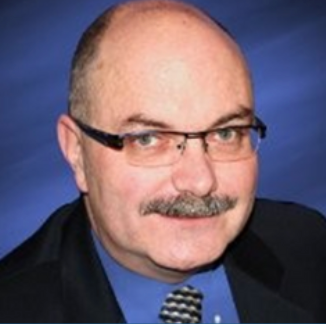How to Age with Grace While Embracing Change

About the Author
Ron B is a globally recognized expert in personal and professional development, holding multiple advanced certifications, including:
- Master Practitioner of NLP (MNLP): Expert in Neuro-Linguistic Programming, helping individuals rewire their thought patterns for success.
- Master NLP Coach (Executive & Life): Skilled in coaching executives and individuals to reach their full potential.
- Master Practitioner of Timeline Therapy™ (MTLT): Specializing in releasing negative emotions and limiting beliefs to foster a more empowered future.
- Board Designated Hypnosis Trainer (TCHt): Authority in utilizing hypnosis for transformation and behavioral change.
- Certified Value Builder: Proficient in enhancing business value and driving entrepreneurial success.
- International Tax Specialist: Knowledgeable in global tax strategies and financial planning.
With a deep passion for guiding people towards greater health and wealth, Ron B has dedicated their career to being a catalyst for change. They advocate for a shift from our current reactive sick care system to one of proactive care, empowering individuals to take charge of their well-being and financial future.
Through this blog, Ron B aims to share insights, strategies, and inspiration, helping entrepreneurs lead energized and lengthy lives that are fulfilling.
Aging is not a problem to solve—it is an evolution to embrace.
Yet many people approach aging with a mixture of resistance and resignation. Popular culture has long glorified youth while sidelining the power and possibility inherent in growing older. Today, however, there is a profound shift taking place: longevity is rising, and so is the understanding that aging can be done gracefully, intentionally, and with great personal agency.
This blog explores how to age with grace while embracing life’s inevitable changes. It offers guidance grounded in research, balanced across gendered experiences, and practical for those seeking to thrive across decades.
Reimagining Grace: Aging as a Learned Skill
Aging gracefully is not about perfection or denial. It is a skill—a cultivated mindset that allows individuals to adapt with dignity, remain relevant, and find meaning at every stage.
- For women, this might include redefining beauty post-menopause, embracing wisdom over aesthetics, and releasing long-held societal pressures.
- For men, it may mean evolving beyond achievement-based identities, developing deeper emotional intelligence, and transitioning from roles of authority to mentorship.
Grace, in this context, becomes less about slowing down and more about showing up—fully, consciously, and courageously.
As stated by Dr. Christiane Northrup “Grace is not about looking young; it is about living well.”
And what does living well actually mean?
It means investing in a way of life that nourishes mind, body, and spirit—where health is not just the absence of illness, it’s the presence of vitality, connection, and purpose. Living well is about aligning your lifestyle with your evolving values, adapting to physical changes while maintaining agency and confidence.
And that brings us to one of the most foundational elements of living well in our later years: physical movement.
Movement with Purpose: Physical Vitality as a Foundation
With rising lifespans and a growing focus on healthspan—the number of healthy, active years in one’s life—physical mobility and function are key.
For Women:
Strength training is essential post-menopause to preserve bone density and prevent sarcopenia. Pilates, yoga, and resistance workouts promote flexibility, balance, and confidence.
For Men:
Focus on mobility, joint stability, and muscular endurance rather than sheer strength. Cardiovascular health and core stability help ensure an active lifestyle into older age.
According to the National Institute on Aging (2023), physical activity is one of the most effective ways to prevent chronic illness and maintain independence.
Yet strength isn’t only found in muscles.
As we age, one of the most profound (and least talked about) transformations occurs within—deep in our hormones and biochemistry. These shifts don’t just change how we feel physically; they influence how we think, relate, sleep, and even how we see ourselves. Navigating midlife with grace means understanding these inner rhythms just as intentionally as we care for our external habits.
Understanding the Hormonal Shift
Hormonal changes during midlife impact mood, memory, sleep, and libido—and are too often dismissed or pathologized.
- Men may experience andropause, marked by declining testosterone levels that affect energy, focus, and emotional regulation.
- Women navigating perimenopause and menopause experience wide-ranging physiological and emotional shifts.
While medical support is essential, non-pharmacological interventions such as improved sleep hygiene, mindfulness practices, and adaptogenic herbs (e.g., ashwagandha, maca) can support equilibrium.
“To age well is to befriend your biology rather than fear it.” — Dr. Mark Hyman
To befriend your biology means choosing curiosity over fear. It’s about recognizing that the shifts in your body—though often unpredictable—are not betrayals, rather invitations to evolve. When we stop resisting the changes and instead learn to listen, support, and adapt, we become empowered co-authors of our aging journey. And as our internal landscape recalibrates, it naturally prompts deeper questions about who we are beyond our roles, routines, and resumes.
Reframing Identity in Later Life
As careers wind down and caregiving roles shift, identity becomes an arena of redefinition. For some, this is liberating; for others, disorienting.
- The father who built a legacy in business may now find fulfillment as a community elder or mentor.
- The mother who spent decades nurturing others may rediscover creative passions and self-leadership.
- Professionals of all genders begin to explore legacy over labor.
The key is integration—bringing forward the strengths of earlier life phases without being bound to them.
As we evolve our sense of identity, we begin to see aging not as an ending, more as a reshaping that unfolds into a new chapter. We can choose to view this chapter as filled with opportunity—or as something bitter and burdensome—and here is where mindset plays a pivotal role. With identity reframed, we become more attuned to the truth that life is a series of transitions—some anticipated, others uninvited. The real mastery of aging gracefully lies in our willingness to move with these shifts, rather than anchor ourselves to the past. Which leads us to the next vital skill in aging well: embracing change, not as loss, now as transformation.
Embracing Change Rather Than Resisting It
Whether facing retirement, relocation, an empty nest, or evolving partnerships, aging is marked by continuous transitions. Those who age well develop adaptability and emotional resilience.
According to the Harvard Study of Adult Development, the world’s longest-running study on well-being, the single most consistent predictor of healthy aging is the quality of one’s relationships and adaptability to life’s changes (Waldinger & Schulz, 2023).
Aging well is not about resisting change, instead about repurposing it.
From Change to Character: How Gender Shapes the Aging Journey
As we begin to embrace change as transformation rather than loss, it’s worth recognizing that how we age—and how we are perceived while aging—is deeply influenced by the social roles and archetypes assigned to us. While each aging journey is unique, cultural narratives often define aging through gendered lenses, shaping expectations, identities, and even opportunities in later life. By exploring these archetypes, we can better understand—and ultimately transcend—the limitations they impose.
The Gendered Archetypes of Aging
Throughout history, aging has been coded differently based on gender.
The masculine archetype of aging transitions from conqueror to sage—valuing wisdom, contribution, and calm presence.
The feminine archetype of aging evolves from nurturer to truth-teller—valuing intuitive insight, embodiment, and creative expression.
When harmonized, they form a powerful integrated identity capable of leading with empathy, standing in integrity, and radiating influence—regardless of age or role.
From Archetype to Action: Rooting Aging in Practical Wisdom
Understanding the archetypal patterns of aging gives us a rich lens to appreciate who we’re becoming—and wisdom only becomes transformation when applied. The journey from nurturer to truth-teller, or from conqueror to sage, isn’t theoretical; it shows up in the everyday choices we make. Aging with grace means grounding these insights in the tangible—how we live, love, move, rest, and relate in the here and now.
That’s where intentional aging begins: not just in theory, more importantly in practice.
Practical Anchors for Graceful Aging
Here are three timeless principles that support aging with intention:
1. Awareness
Stay informed about physical, emotional, and cognitive shifts. Avoid fear-based narratives, and instead focus on conscious choice-making.
2. Adaptation
Change routines, relationships, and roles when needed. Let go of outdated identities to make room for richer, more aligned expressions of self.
3. Alignment
Choose activities, relationships, and goals that reflect who you are now, not who you were twenty years ago.
4. Agelessness
Reject the notion that the number of candles on your cake dictates what you’re capable of. Aging well isn’t about denying your age—it’s about refusing to be boxed in by it. The body may evolve, while the spirit stays timeless. Grit, curiosity, joy, and purpose don’t retire. You don’t have to either.
As we like to say on the Longevity Train: Age is just a number. Living young is a choice.
The Longevity Imperative: A Call to Reinvention
We are now living in an era where it is common to work, create, and lead into our 70s and beyond. Healthspan is expanding, and with it, the responsibility to reimagine what aging can and should look like.
“Aging professionals aren’t slowing down—they’re stepping up in vitality and capability well past traditional retirement age, and that is something to celebrate as opposed to dismissal.” — Jenn Drakes
Companies like Home Depot, which supported policy moves around extending the retirement age (Weller, 2023), recognize the value and capability of aging workers. As such, continued contribution is no longer the exception—it’s becoming the norm.
In this era of extended possibility, aging becomes less about limitation and more about reinvention.
Final Thoughts
To age with grace while embracing change is not to quietly exit the stage—it is to take your place at the center of a new chapter. It is to evolve with clarity, move with vitality, and live with intention.
You are not fading—you are forming into something more expansive, more authentic, and more impactful.
Your next chapter isn’t a rewrite—it’s a masterpiece in progress.
✨ Are You Ready to Reinvent Your Aging Story?
Explore the Longevity Train™ suite of services, from vitality coaching to personal health planning.
Let’s co-create your
personal roadmap for aging well, living boldly, and staying relevant in every season of life.
Let’s Chat!
References
National Institute on Aging. (2023). Exercise and physical activity: Getting fit for life. U.S. Department of Health and Human Services. https://www.nia.nih.gov/health/exercise-physical-activity
Waldinger, R., & Schulz, M. (2023). The Good Life: Lessons from the world’s longest scientific study of happiness. Simon & Schuster.
Weller, C. (2023). Why Home Depot lobbied for higher retirement ages. Center for American Progress. https://www.americanprogress.org/article/why-home-depot-lobbied-for-higher-retirement-ages/
Hyman, M. (2020). The longevity solution: Rediscovering healthspan. MindBodyGreen. https://www.mindbodygreen.com/articles/mark-hyman-healthspan
Northrup, C. (2010). Women’s Bodies, Women’s Wisdom: Creating physical and emotional health and healing. Bantam.
Get your FREE Guide to Graceful Aging - 6 Tips To Avoid Red Face Moments, by clicking on the button below.






Energized Aging For Entrepreneurs





